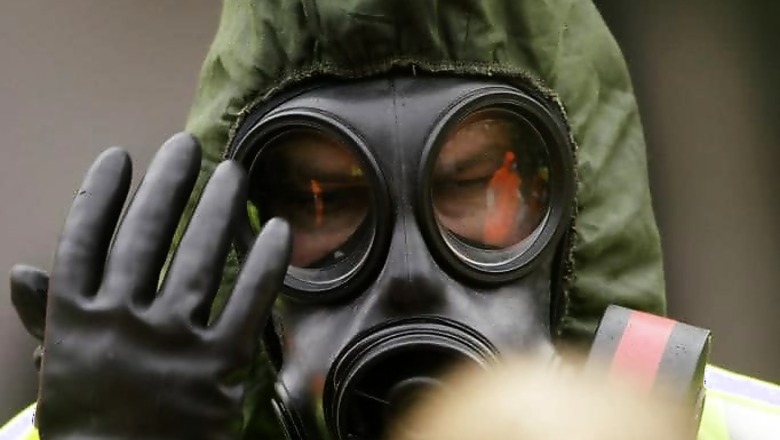
views
London: The UK counter-terrorism police are focusing their efforts on growing fears of a chemical attack in the country by British terrorists returning from Syria and Iraq linked to dreaded Islamic State (IS) terrorists.
Bombs laced with chlorine, which is available to buy in large quantities in Britain, has become the "chemical weapon of choice" for IS fighters, security experts warned.
Colonel Hamish de Bretton-Gordon, a leading expert on chemical warfare, has called on the British government to tighten controls on chlorine sales in Britain.
"As more jihadists return to this country there is a growing chance (of a chlorine bomb attack). That to me puts it through the threshold where we should look into this seriously," he was quoted as saying by The Times newspaper.
The chemical has a range of uses, such as purifying water and disinfecting surfaces, but can prove lethal if inhaled. An improvised chlorine bomb would cause carnage if detonated on the London Underground network, on the mainline railway network or in a shopping centre.
The chlorine that is often used in bombs in Iraq comes from the cylinders on the back of household fridges. Militants strip off the steel bottle and attach an explosive charge to make a simple improvised chlorine device - something that could be repeated in Britain.
"Somebody could go to a waste site where people chuck away fridges (in Britain) and get a whole bunch of these things and blow them up," Colonel de Bretton-Gordon said.
The former commanding officer of the Joint Chemical, Biological, Radiological and Nuclear Regiment, who left the military in 2011, said that Britain should impose more stringent rules on substances such as chlorine.
There are tight controls in Iraq over the purchase of chlorine. In Britain, by contrast, anyone is allowed to buy 90 tonnes of the substance without a license. It is understood that the authorities monitor the purchase of chlorine and other materials that could be used in bomb-making, to uncover any stockpiling.
However, as chlorine is freely available across the country, security sources conceded that it posed a risk. One policing source told the newspaper that counter-terrorism units were aware of the possibility of terrorists using a chlorine bomb on British soil.

















Comments
0 comment